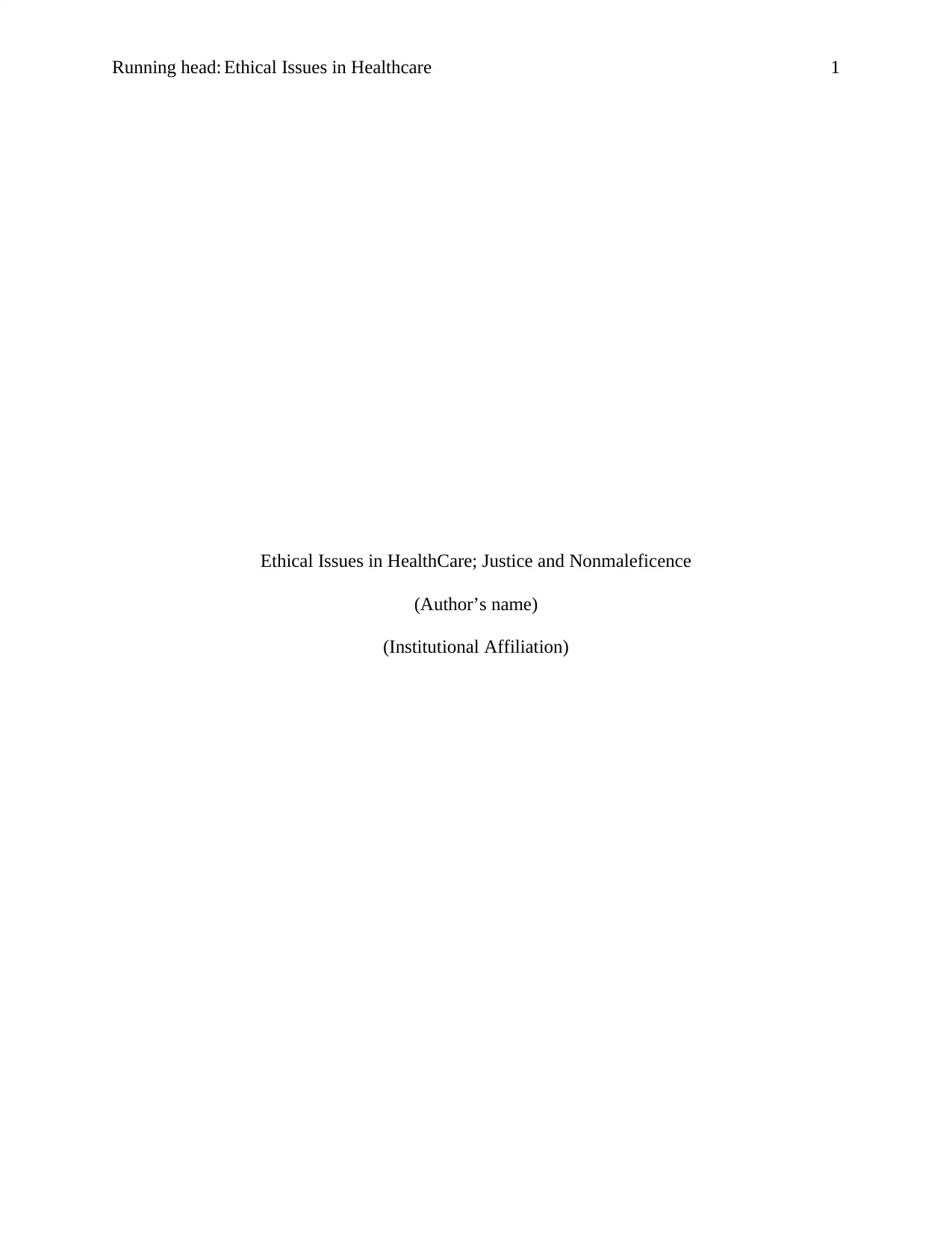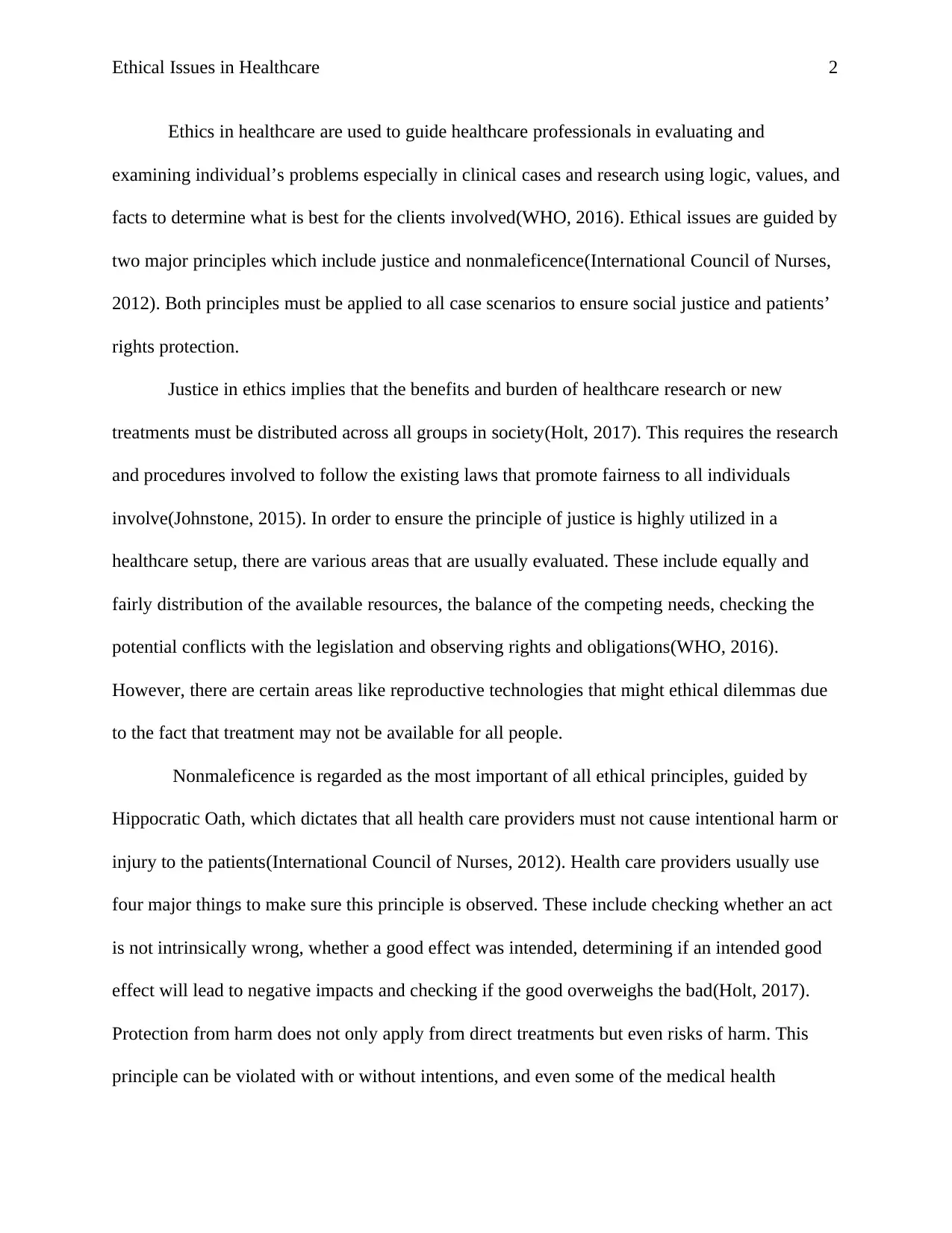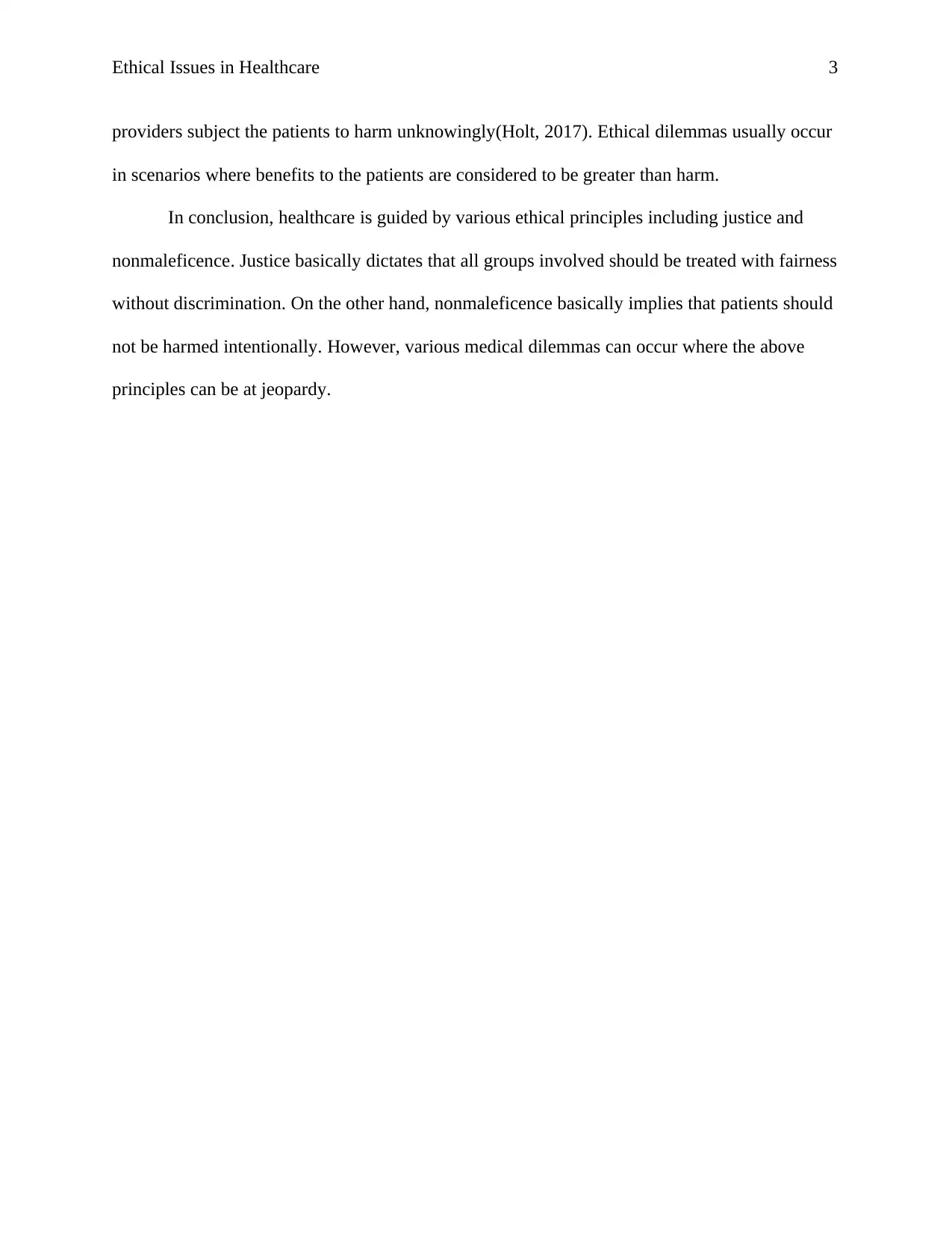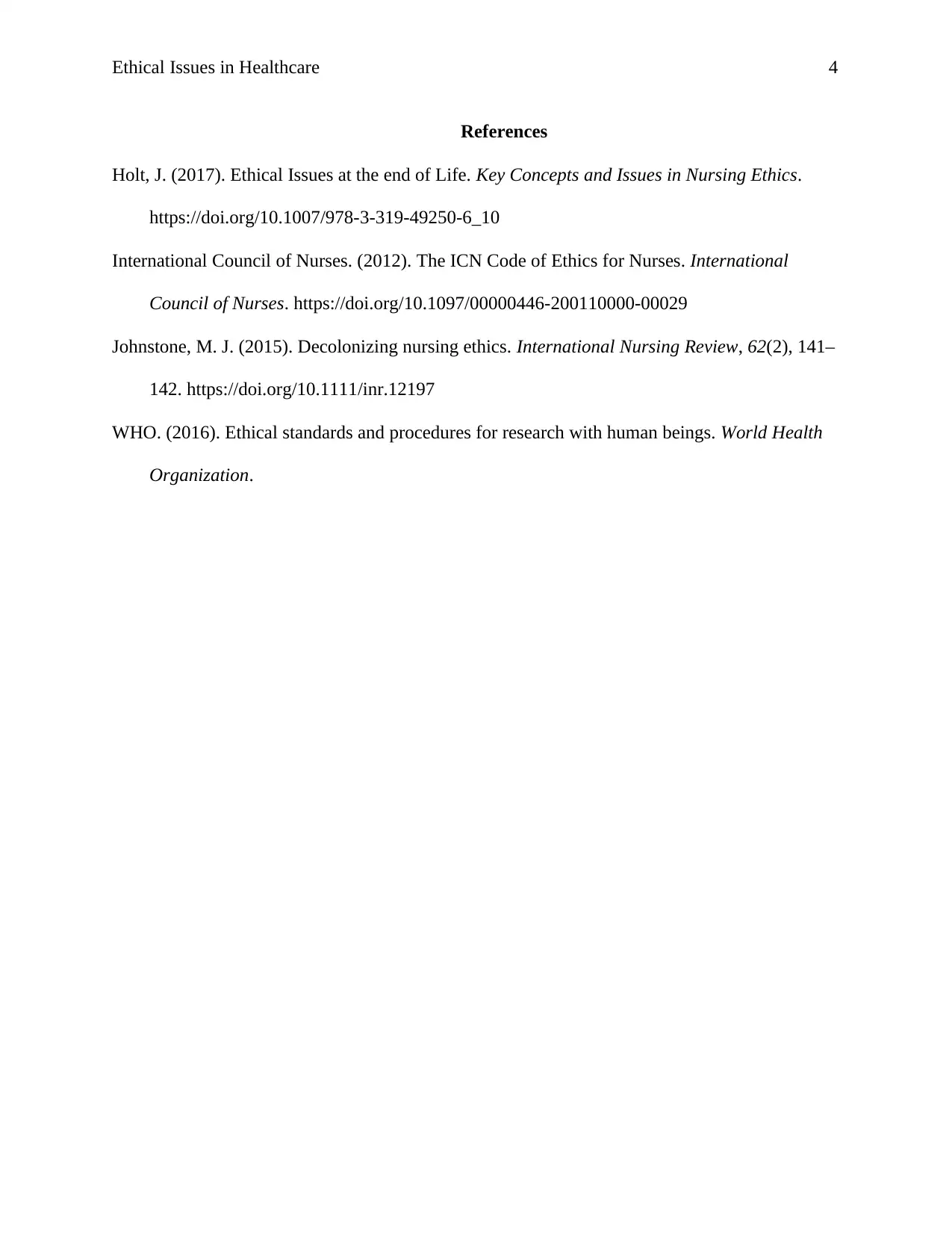Ethical Issues in Healthcare: Principles of Justice and Nonmaleficence
VerifiedAdded on 2023/01/18
|4
|598
|91
Report
AI Summary
This report examines the ethical principles of justice and nonmaleficence within the context of healthcare. It begins by defining ethics in healthcare and highlighting the importance of these principles in guiding healthcare professionals. The report emphasizes that justice involves the fair distribution of resources and equal treatment for all individuals, while nonmaleficence focuses on avoiding harm to patients. The report explores the application of these principles, ethical dilemmas that arise, and how healthcare providers strive to uphold them. It also highlights the importance of the ICN Code of Ethics and references the challenges that can occur in specific situations, such as reproductive technologies. The conclusion stresses the significance of these ethical guidelines in ensuring patient well-being and ethical healthcare practices.
1 out of 4











![[object Object]](/_next/static/media/star-bottom.7253800d.svg)